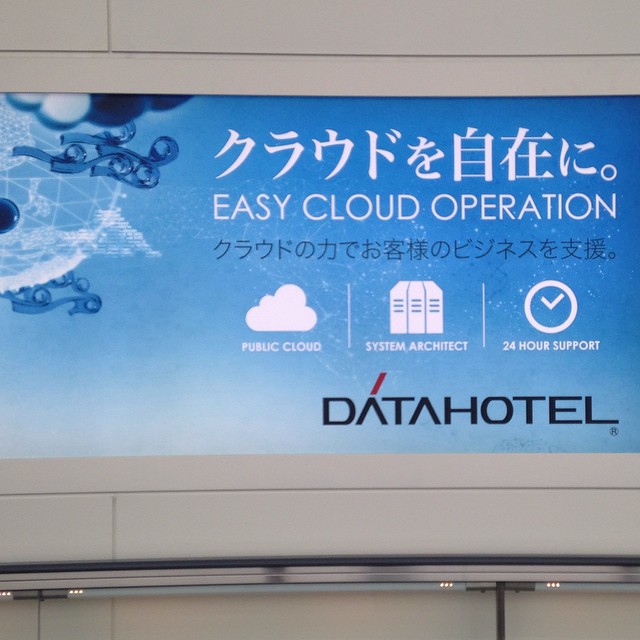A billboard encountered at Haneda Airport in Tokyo this week. I find it interesting to observe the criteria chosen by the cloud company: we understand here that the service should be easy and that a reliable support might exist (24 hours). This looks quite common in the tech industry. However, I find the two others characteristics quite intriguing: "public cloud" and "system architect" sounds a bit abstract and strange. Perhaps the latter corresponds to the idea of a well-designed system, but I wonder about the notion of "public cloud" itself: what does that mean? Although it might suggest a public access to data, it may consist in something else (perhaps there's a Japanese thing I'm missing here) as it's difficult to sell people a service where all your data are made public.
The graphic design of this ad is also revealing: the blue evocation of the sky – would a cloudy sky be too much in an ad? –, the rolling cloud which looks like seawaves drawn out of a Saint Seiya episode, the use of white fonts, and a logo that reminds of the Air France logotype's comma. That's how a complex technology is presented here. Perhaps one needs ai aircraft carrier's mindset to manage data in the cloud.
And finally, the name is also revealing. "Datahotel" is the new "Datawarehouse". The vocabulary is important here. Our data are now taken care of in an hotel; with a dedicated type of services (and their "system architect"). What's next? Datahavens? Dataheavens? or shall we return to the cyberpunk data-banks from the 80s (only accessible via Ono-Sendai's consoles)?
Why do I blog this? Working on a Cloud Computing project makes me curious of how things are communicated in this domain. As shown here, the whole cloud metaphor is utterly weird and quite disconnected from the infrastructure these services rely on.

